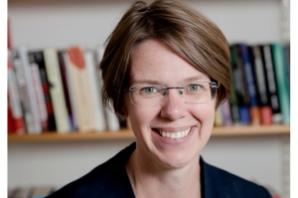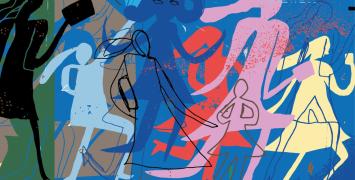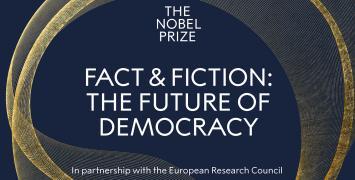Living together in diversity

By Inge Ruigrok
Elisabeth Ivarsflaten’s research journey began with a focus on far-right parties and public opinion of immigration. Her ERC-funded project INCLUDE flips the perspective. Rather than analysing the drivers of exclusion, it examines those who advocate for inclusive democracies. This shift in perspective led to a striking realisation: ‘At first, I thought it was just the same question in reverse’, she says. ‘But soon I realised it was fundamentally different. We were studying entirely different people, ideas about democracy, and concepts of coexistence.’
INCLUDE focuses on what non-Muslims in Europe are willing to accept when including Muslim minorities in their societies. Ivarsflaten explains, ‘Over the past century, European democratic culture has become more inclusive. Yet this development brings new value conflicts to the fore - for example, between gender equality and the religious freedom of minorities. We are studying how those who claim to support inclusion navigate these tensions. Where do they draw the line?’
These value conflicts highlight how complex it is to define inclusion and exclusion, as these concepts vary widely between individuals and social contexts. To understand exclusion, the team examines support for restrictive policies, such as limiting Muslim religious freedom in Europe. An example of this would be the view that Muslims should not have the right to practise their religion or culture in Europe - if they want to do so, they should move to a country where this is more acceptable. This represents a clear, exclusionary position, which is relatively easy to define.
Inclusion, however, is more nuanced. It includes positions that may not align with philosophical ideals but are still perceived as inclusive. ‘There are many different positions’, Ivarsflaten explains. ‘Some people may view their stance as inclusive, even if not all philosophers would agree. Political philosophers work on distinguishing what is right and wrong in theory. But I’m studying what matters in practice.’
Public opinion
Politicians often struggle to gauge public attitudes toward inclusion. While many are committed to upholding an inclusive democracy, they are many times unsure of how their positions will be perceived by the public. Ivarsflaten: ‘Many well-intended politicians feel caught between their desire to represent their supporters and the fear that public opinion will turn against them.’
This complexity, she notes, is why her research is crucial. ‘Through our experiments, we can explore reactions to hundreds of scenarios and determine where public support is gained or lost. Our work is not about providing policy recommendations, but about offering insights that can help inform decisions.’
Ivarsflaten’s research in northwestern Europe reveals a hierarchy of values among those with liberal positions on gender equality and minority inclusion. ‘Gender equality is often prioritised over religious freedom and the inclusion of minorities,’ she explains. ‘This suggests that people will defend gender equality even when it conflicts with other rights.’
Gestures of respect
She also points out that, ‘Neither the left nor the right supports Muslims preaching conservative ideas. This is difficult for conservative Muslims and liberal democracies.’ Ivarsflaten suggests that one way to address this issue is to be more specific about what is meant by conservative ideas. ‘The word conservative can mean many things, and it is often prejudiced to assume that all such views are oppressive to women. Some may be, and it is important to specify which ones.’
One of the project’s key studies focused on attitudes toward forms of respect such as a handshake. ‘In many European contexts, refusing to shake hands is unacceptable, especially in public institutions. But for some conservative Muslims, avoiding physical contact with the opposite gender is a religious obligation,’ Ivarsflaten explains.
Through sequential surveys (online panels contacted every six months) the team tested different scenarios. They found that an alternative gesture of respect, such as placing a hand on the heart, significantly reduced the insistence on handshaking. ‘Most people agreed that this alternative was acceptable. This is a remarkable result, a concrete solution to an everyday issue. We should insist on a gesture of respect, but it does not need to be a handshake.’
Balancing values
Another finding in Ivarsflaten’s research concerns the boundaries of inclusiveness. ‘People who support inclusion have strong ideas about what is acceptable to them. They set strict limits on how far they want to go. Whenever I communicate our research to policymakers and political parties, I tell them: “If you are serious about an inclusionary agenda, you need to understand what your voters think. People care deeply about these issues, and inclusion does not mean agreeing to everything. Some people are willing to go quite far, but most are protective of their own culture.’
Reflecting on inclusion within her team at the University of Bergen, which consists of early career researchers, Ivarsflaten is encouraged by their intellectual contributions. ‘This ERC- project has given us all an opportunity to take research in new directions, often in collaboration with excellent international colleagues. Many young scholars in our field are focused on solutions. That’s what this project is about - not just identifying problems but finding ways forward. That approach resonates with young researchers.’

Biography
Elisabeth Ivarsflaten is a Professor of Political Science at the Department of Government and the Scientific Director of the Digital Social Science Core Facility at the University of Bergen, Norway. She has written extensively on the far right, as well as the politics of immigration and inclusion in established democracies. Her book The Struggle for Inclusion: Muslim Minorities and Democratic Ethos (Chicago University Press 2022), co-authored with Paul M. Sniderman, introduces a new research agenda to investigate what supporters of inclusive democracies mean by inclusion. Ivarsflaten is currently pursuing this research agenda as the Principal Investigator of the ERC-funded Consolidator Grant Project, Openings to the Inclusion of Muslim Minorities in Today’s Democracies (INCLUDE).






